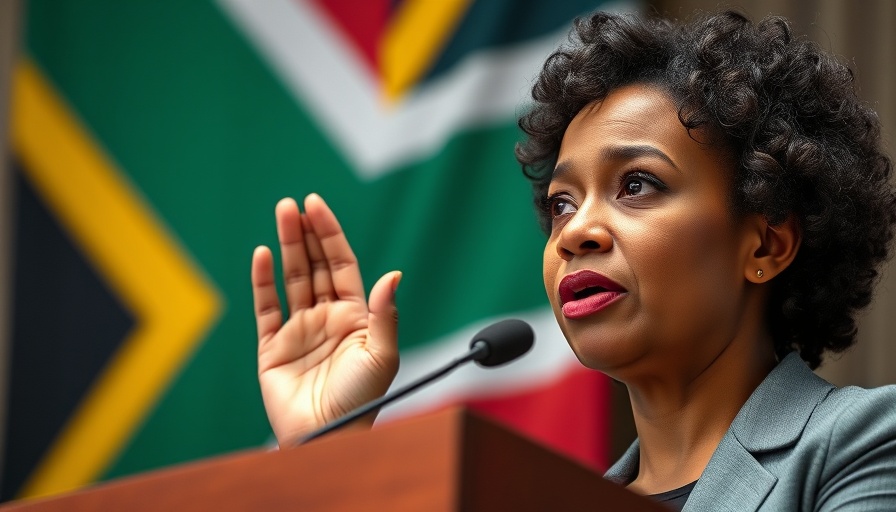
Understanding South Africa's New Armscor Board: A Critical Overview
In a significant move that could reshape South Africa's defense approach, Defence Minister Angie Motshekga appointed a fresh board to oversee Armscor, South Africa's arms procurement agency. This change comes amidst growing concerns about the country's military capabilities and the efficiency of its defense procurement system. While all the new members exhibit a strong command of administrative processes, a noticeable gap exists regarding their understanding of the complexities inherent in the military-industrial landscape. This article analyses the implications of this board appointment, particularly against the backdrop of South Africa's broader geopolitical and economic climate.
The Relevance of Armscor in South Africa's Military Framework
Armscor, formally known as the Armaments Corporation of South Africa, is pivotal in securing weapon systems and technology that fortify the South African National Defence Force (SANDF). Yet, the historical context of Armscor is fraught with challenges; past procurement scandals have tainted its reputation and amplified public scrutiny. As South Africa navigates its post-apartheid landscape, the efficiency and transparency of its arms procurement bodies are more crucial than ever. Stakeholders argue that a profound engagement with the realities of national security and defense capabilities is imperative for the board to succeed.
Challenges Facing the New Board: A Lack of Military Insight
Although the newly appointed board members come with commendable qualifications, there is a prevailing consensus that their lack of direct experience in the military sector could hinder Armscor's operational efficacy. This is concerning in a field where operational knowledge is paramount due to the fast-evolving nature of defense technologies and geopolitical threats. Internationally, countries engage in continuous innovation and collaboration in military capabilities, illustrating the dependency on knowledgeable boards that grasp these complexities.
Linking Military Procurement to Broader Socio-economic Issues
The implications of Armscor's effectiveness extend beyond mere military concerns; they are deeply tied to economic growth, technological advancement, and governance. As South Africa grapples with pressing issues like poverty, unemployment, and corruption, the arms procurement process becomes a litmus test for transparency and accountability within governance structures. Decolonization efforts and the quest for an Afrocentric identity in global military dynamics also place added pressure on how the country approaches defense purchasing.
Future Predictions: Arms Procurement in a Changing Geopolitical Landscape
Looking ahead, global geopolitical dynamics are shifting, with an observable rise in geopolitical tensions. As countries such as South Africa reevaluate their defense priorities, the demand for increased accountability and innovative strategies in arms procurement will surge. The new board at Armscor must pivot quickly and decisively, positioning itself as a key player in the continental defense landscape while ensuring that their activities align with sustainable development objectives such as poverty alleviation and technological innovation.
Conclusion: What Lies Ahead for Armscor?
The future of Armscor and its new board hinges on their ability to adapt and innovate while remaining anchored in accountability and public trust. As South Africa battles with numerous socio-economic challenges, how Armscor navigates its procurement processes will be reflective of governance standards and public expectations for transparency. Engaging the public and fostering a better understanding of the military-industrial complex could augment social trust and catalyze support for necessary reforms within the defense sector.
This appointment of a new board at Armscor is indeed a pivotal juncture for South Africa's arms procurement agency. As undercurrents of transformation and disruption of the status quo unfurl, stakeholders must remain vigilant and vocal, ensuring that this change indeed translates into a smarter, more accountable arms procurement agency that aligns seamlessly with the needs of the nation and the aspirations of its people.
 Add Row
Add Row  Add
Add 




Write A Comment